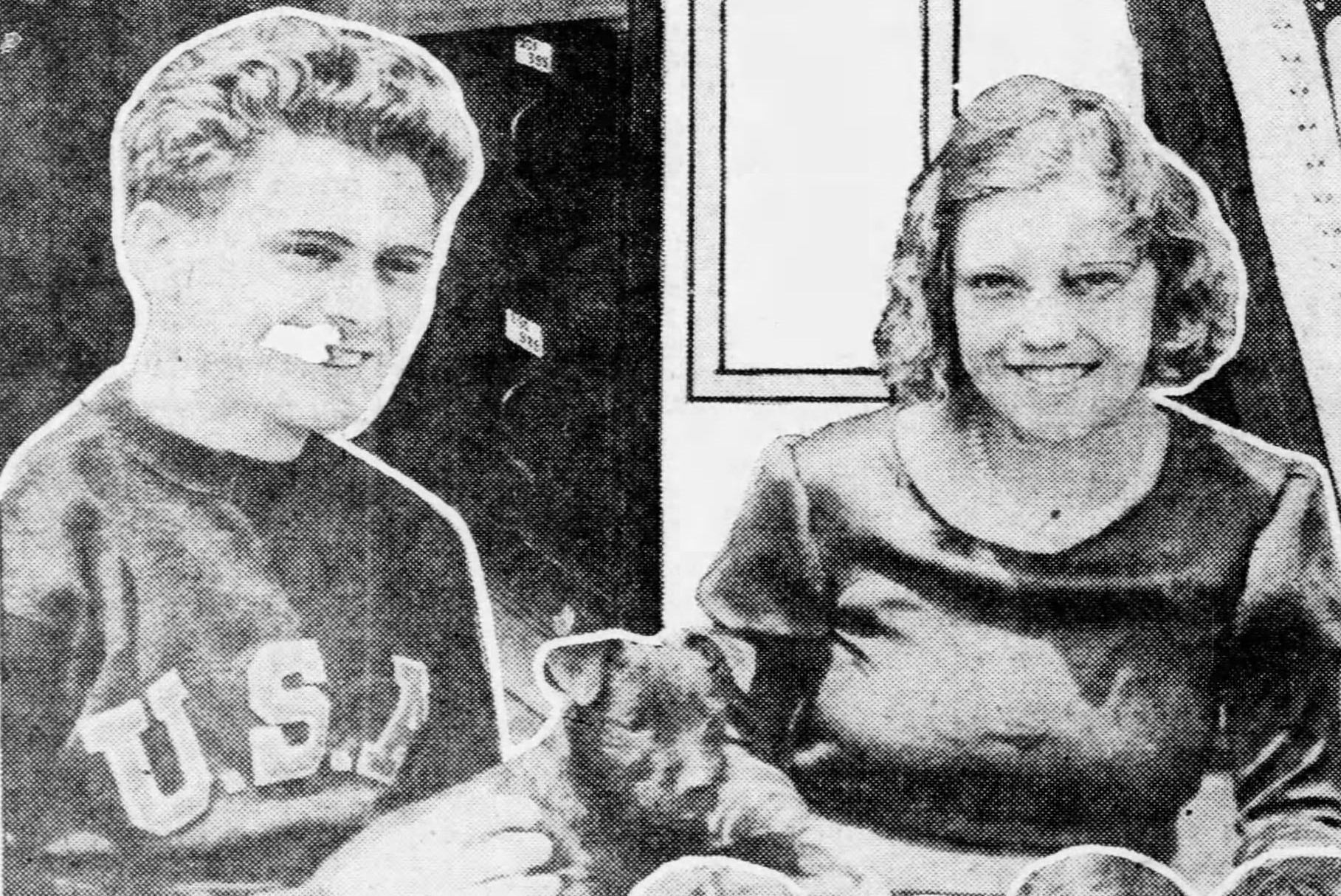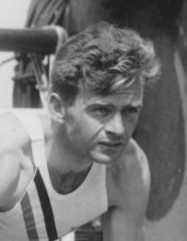1. Overview
Frank Clifford Wykoff (October 29, 1909 - January 1, 1980) was a prominent American athlete who achieved a unique place in track and field history. He was the first man to win three consecutive Olympic Games gold medals in the 4 × 100 metres relay, with all three victories also setting or equaling world records. This article details Wykoff's early life, his remarkable athletic career, and his contributions in the post-athletic career as a teacher and administrator, concluding with an assessment of his lasting legacy.
2. Early Life and Education
Frank Wykoff's formative years and academic pursuits laid the groundwork for his athletic and professional life.
2.1. Birth and Upbringing
Frank Clifford Wykoff was born on October 29, 1909, in Des Moines, Iowa, in the United States. Information regarding his specific childhood environment is not detailed, but his early life in Des Moines preceded a significant athletic and academic journey in California.
2.2. Academic and Collegiate Activities
After his initial Olympic debut, Wykoff enrolled at Glendale Community College in 1929. He studied there for one year, continuing his training under his former Glendale High School coach, Normal Hayhurst. This period was critical as he had faced a severe throat infection the previous fall, which nearly claimed his life. Despite this serious illness, he made a remarkable recovery by spring, allowing him to compete for Glendale as a sprinter and, impressively, tie the world record in the 100-yard dash four times.
Following his time at Glendale Community College, Wykoff transferred to the University of Southern California (USC). At USC, he trained under the guidance of the renowned coach Dean Cromwell, who was a significant influence on his development as an athlete. During his tenure at USC, Wykoff became a member of the Kappa Alpha Order national fraternity, indicating his engagement in campus life beyond athletics. He continued his studies after graduating in 1932, earning a master's degree in 1936.
3. Track and Field Career
Frank Wykoff's track and field career was marked by numerous national championships and unprecedented Olympic success, solidifying his status as a legendary sprinter.
3.1. Major Competitions and Records
Wykoff's talent was evident early in his career, as he secured multiple victories in prestigious national competitions. He won the AAU championships in the 100-yard dash in both 1928 and 1931. His collegiate dominance was equally notable, as he claimed the NCAA championships in the 100-yard dash in 1930 and 1931.
In May 1930, Wykoff set a new world record in the 100-yard dash with a time of 9.4 seconds, a feat he repeated just one month later. In 1931, while serving as the anchor leg for the University of Southern California's 4 × 100 metres relay team, he contributed to setting a new world record of 40.8 seconds.
3.2. Olympic Achievements
Wykoff's Olympic career was historic, as he became the first athlete to win three consecutive gold medals in the 4 × 100 metres relay, each time contributing to a world record-setting or world record-tying performance.
His Olympic debut occurred at the 1928 Summer Olympics in Amsterdam. In the individual 100 metres event, he finished fourth, narrowly missing a bronze medal by one-tenth of a second. However, his significant contribution came in the 4 × 100 metres relay. Running the opening leg, Wykoff, alongside teammates James Quinn, Charles Borah, and Henry Russell, helped the American team secure the gold medal by equaling the existing world record with a time of 41.0 seconds in the final.

Four years later, at the 1932 Summer Olympics held in Los Angeles, Wykoff participated in the 4 × 100 metres relay for the second time. This time, he ran the anchor leg for the American team, which included Robert Kiesel, Hector Dyer, and Emmett Toppino. They achieved a new world record time of 40.0 seconds, earning Wykoff his second Olympic gold medal.

Wykoff made his third consecutive Olympic appearance at the 1936 Summer Olympics in Berlin. Similar to his performance in 1928, he again placed fourth in the individual 100 metres event. In the 4 × 100 metres relay, he once more anchored the American team. This formidable team also included Jesse Owens, Ralph Metcalfe, and Foy Draper. They sprinted to a new world record of 39.8 seconds, securing Wykoff his third Olympic gold medal and completing his unprecedented achievement of winning three consecutive relay golds.
4. Post-Athletic Career
Following his illustrious athletic career, Frank Wykoff transitioned into a career in education and administration.
4.1. Teaching and Administrative Roles
After graduating from the University of Southern California in 1932 and completing his master's degree in 1936, Frank Wykoff embarked on a career as an educator. He worked as a teacher and later as an administrator within the Los Angeles County school system. Wykoff dedicated many years to this profession, serving the school system until his retirement in 1972.
5. Death
Frank Wykoff passed away on January 1, 1980, in Altadena, California, at the age of 70.
6. Legacy and Assessment
Frank Wykoff's impact extends beyond his impressive athletic achievements, leaving a lasting mark on sports and embodying a set of values adopted by a prominent youth organization.
6.1. Impact on Sports
Wykoff holds a unique place in Olympic history as the first athlete to win three consecutive gold medals in the 4 × 100 metres relay, with each victory either establishing or equaling a new world record. This unprecedented accomplishment highlights his consistent excellence and crucial role in the American relay teams of the era. His achievements underscore not only his individual speed but also his reliability and teamwork, contributing to a golden age for American sprinting. His records and consistent performances have left a significant legacy in the history of track and field.
6.2. Slogan and Commemoration
Beyond his athletic prowess, Frank Wykoff is also remembered for a personal slogan that encapsulated his values: "Clean Speech, Clean Sport, Clean Scholarship, Clean Life." This slogan was formally adopted by the YMCA in 1938, demonstrating its resonance and the positive influence Wykoff had on youth and character development. To commemorate his contributions, his Olympic medals are available for public viewing by contacting the LA84 Foundation in Los Angeles, California, allowing his legacy to be appreciated by future generations.